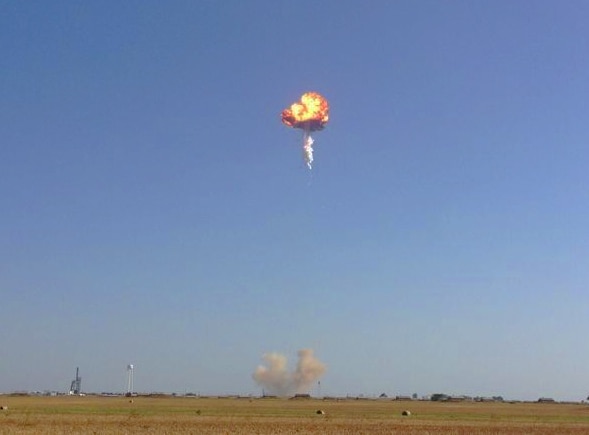Create a free profile to get unlimited access to exclusive videos, sweepstakes, and more!
SpaceX and ESA Suffer Launch Problems

It hasn’t been the best week for uncrewed space launches.
On Friday, Aug. 22, 2014, SpaceX was testing a new configuration of its F9R vertical launch and landing rocket—essentially a Falcon 9 first stage booster adapted to land on its tail after launching a payload into space—when something went wrong. It was already a few hundred meters in the air when the software onboard detected the malfunction and aborted the mission by exploding the rocket. This is done to prevent the possibility that an out-of-control rocket might fly off and injure someone.
To be clear: This was an uncrewed rocket, no one was hurt, and it was a test flight to try out some new tech. Footage of the launch and explosion is easy to find online; here’s one from BBC Brasil:
I’ll note that most of the video I found was copied from other sources, and original footage is difficult to find. Hopefully SpaceX will release better video soon. They did issue a statement:
Earlier today, in McGregor, Texas, SpaceX conducted a test flight of a three engine version of the F9R vehicle (successor to Grasshopper). During the flight, an anomaly was detected in the vehicle and the flight termination system automatically terminated the mission.
Throughout the test and subsequent flight termination, the vehicle remained in the designated flight area. There were no injuries or near injuries. An FAA representative was present at all times.
With research and development projects, detecting vehicle anomalies during the testing is the purpose of the program. Today’s test was particularly complex pushing the limits of the vehicle further than any previous test. As is our practice, the company will be reviewing the flight record details to learn more about the performance of the vehicle prior to our next test.
They haven’t yet said what exactly went wrong. SpaceX will provide another update when the flight data has been fully analyzed. I have to wonder how certain members of Congress will react when the news is released …
Anyway, I think Elon Musk, CEO of SpaceX, said it best:
SpaceX was scheduled to launch AsiaSat 6 into orbit on a Falcon 9 today, but after the test problem this new launch has been pushed back to Wednesday, Aug. 27. The hardware involved is very different, but they want to make sure there’s no risk to the AsiaSat 6 mission.
In other news, a European Space Agency launch didn’t go according to plan either. The mission was to put the first two Galileo global positioning satellites into orbit, but the rocket put them into the wrong orbit. It’s not clear that the satellites’ on-board propellant is sufficient to get them into the correct orbit, either, which means they would be “deemed useless.”
Galileo is the European version of the American GPS satellites, with 30 satellites set to eventually comprise the entire fleet. This failure to get them into orbit is a serious issue; the same rocket system is planned to launch four more pairs, but that will have to be put on hold until the problem is resolved. A dozen more satellites are planned to be launched by a different rocket sometime later.
So, this has been a rough week for space travel, but these things happen. No one was hurt, which is good, and hopefully the problems will be analyzed, understood, and quickly fixed.
This is, after all, rocket science.


























